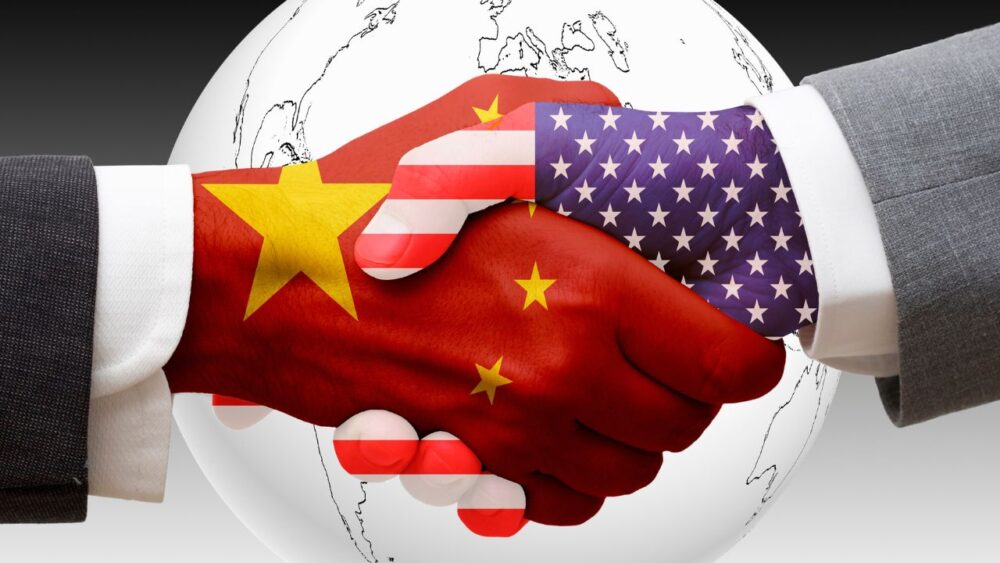The United States and China announced on Monday a 90-day pause on most tariffs imposed on each other, marking a significant de-escalation in the trade war between the world’s two largest economies.
The agreement, reached after weekend talks in Switzerland, sent global stocks soaring as investors welcomed prospects of reduced tensions.
Under the deal, U.S. tariffs on Chinese imports will drop to 30% from 145%, while China’s levies on U.S. imports will fall to 10% from 125%, according to a joint statement from both nations. The talks in Geneva were the first face-to-face negotiations since tariffs began escalating following President Donald Trump’s April 2 announcement of sweeping global duties.
U.S. Trade Representative Jamieson Greer described the discussions as “very constructive and positive conversations with our Chinese counterparts, who clearly came to deal this week.”
Treasury Secretary Scott Bessent, also part of the U.S. delegation, said the tariffs had amounted to “the equivalent of an embargo,” which neither side wanted.
“We do want trade, we want more balanced trade, and I think that both sides are committed to achieving that,” he added at a Geneva news conference.
The U.S. has long criticized China for unfair trade practices, with Trump accusing Beijing of “ripping off” the U.S. through a massive goods trade deficit, the largest among any U.S. trading partner. Unlike other nations, China retaliated with its own tariffs and nontariff measures, leading to rapid escalation.
In a Monday CNBC interview, Bessent said the agreement establishes “a mechanism to avoid the upward tariff pressure.” He dismissed suggestions that negotiations should have preceded the tariffs, which caused global market turmoil, arguing that “business as usual” had failed to address trade imbalances.
China’s Commerce Ministry called the deal an “important step” that “creates favorable conditions for further narrowing differences and deepening cooperation.” A ministry spokesperson urged the U.S. to “build on the foundation of this meeting, continue to work in the same direction with China,” and “completely correct its unilateral tariff practices.”
The announcement triggered a surge in U.S. stock markets, with the Dow Jones Industrial Average rising 2.5%, the S&P 500 climbing 2.6%, and the Nasdaq jumping 3.5% in premarket trading. Hong Kong’s Hang Seng Index soared over 3%, while mainland Chinese markets closed higher before the deal’s details emerged. European indexes saw more modest gains late Monday morning.
The pause offers a reprieve from the trade war’s economic toll, though both sides face pressure to sustain momentum toward a longer-term resolution.


